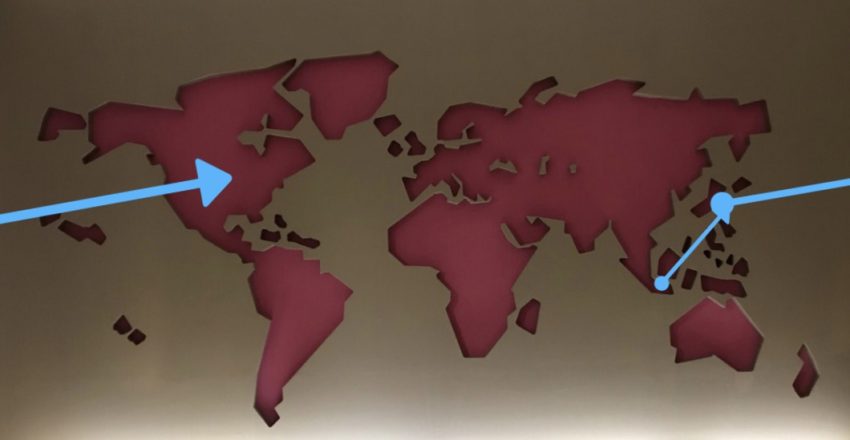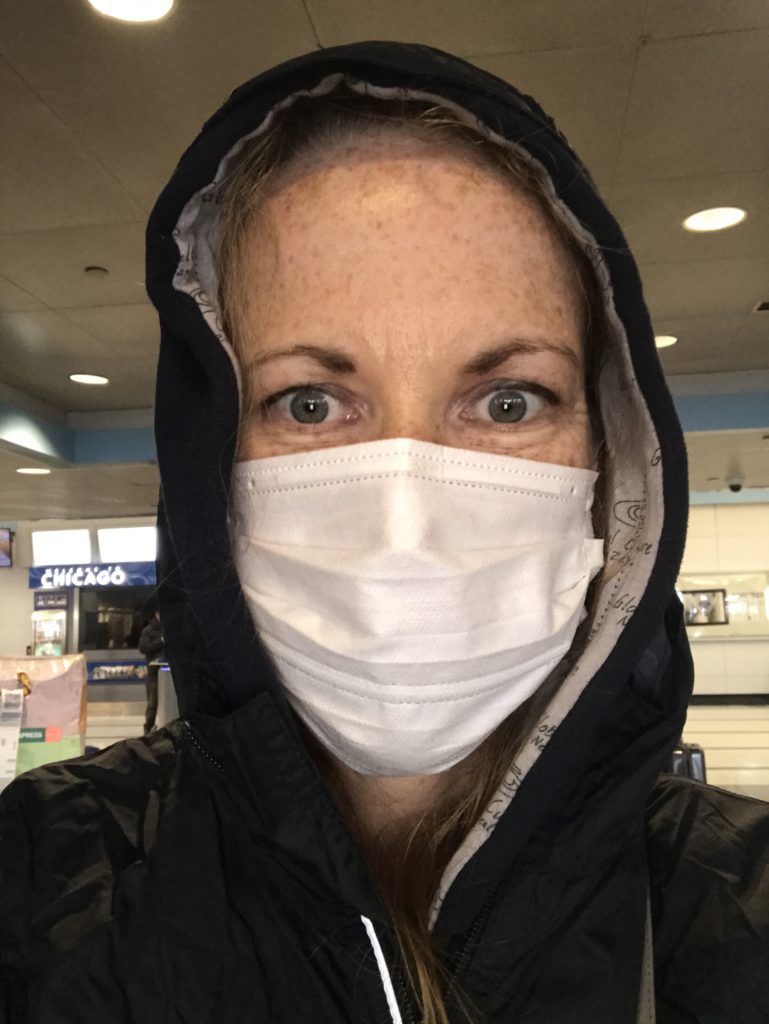
It’s been a month since I landed back in the U.S.A. at Chicago’s O’Hare airport, smack in the midst of one of that city’s famous winter freezes, as temperatures plunged to near 0 degrees Fahrenheit. At the time, the novel coronavirus was plaguing China, and news was starting to report some spread beyond that country’s borders. I did what I could to travel safely, and felt as prepared as possible for winter (I’ve never been a fan of the cold, really). Little did I know how quickly COVID-19 would become a global pandemic. And, I did not fully grasp how much my body and spirit dislikes the cold and prefers sunshine and warmth. For example, turns out that what doctors previously thought was carpal tunnel syndrome in my right hand/wrist is actually cold-induced arthritis. To be fair though, I’m sure nearly everyone would experience some level of shock at going from the Semarang climate of mid-90s with 50-70% humidity to the arctic cold of 8 degrees (with a wind chill bringing it down to -1) I experienced in Chicago!!
In the best of circumstances, I knew that returning to one’s home country after such a life-changing, career-altering, unique experience as a five month Fulbright research grant in Indonesia would present a scholar with challenges to face. Friends and colleagues who have had their own experiences of living abroad warned me about the realities of “reverse culture shock.” The U.S. State Department warns people about the realities of this phenomenon, and many world travelers have written about it, including in the book The Art of Coming Home. And, I have experienced much of that, including astonishment at how unaware of their privilege people who have access to drinkable water from their faucet, pedestrian crosswalks on their roads, and reliable electricity and internet in their homes can be. But more on that later in another blog entry.
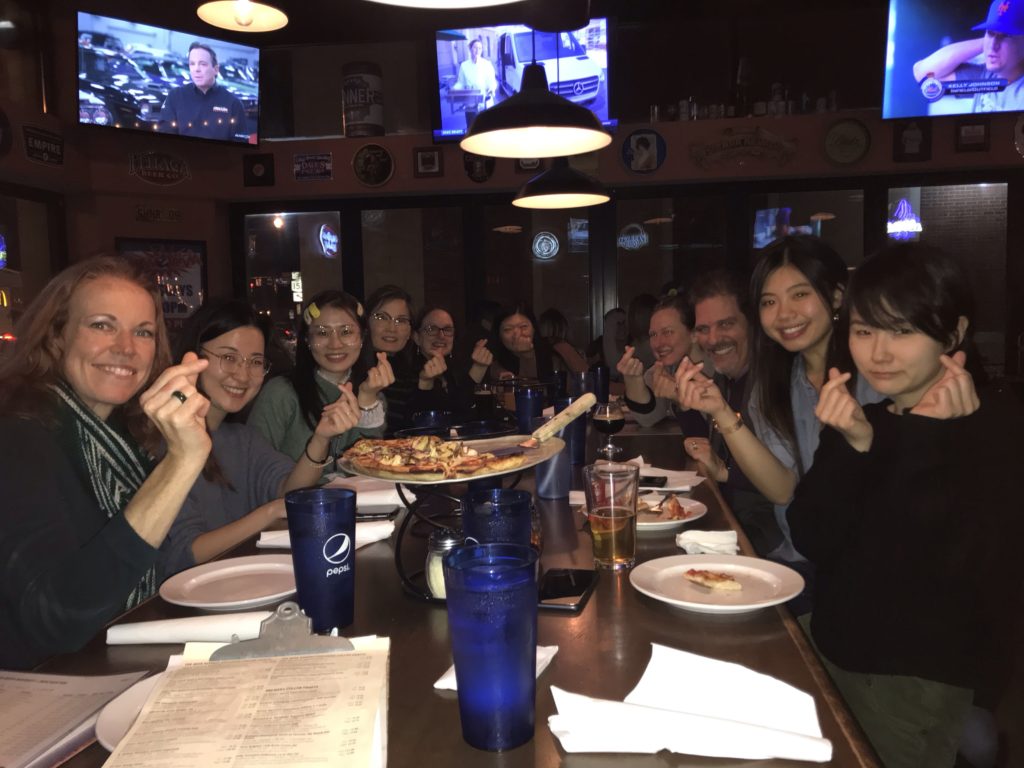
It hasn’t been all bad, though. In the last month, I’ve had the blessed opportunity to reconnect with family and friends back here in the U.S., visiting with dear ones in Chicago, Wisconsin, New York, Tennessee, New Jersey, and Florida. That’s been lovely. It’s been easier to reconnect with people in this hemisphere, and more than one person has expressed how nice it is to have me back and to be able to reach me more easily, without having to do so much time zone math before they pick up the phone and make a call. I also spent time with my students at the Warner School, and finally got the chance to congratulate the newest Ph.D. in the Lammers Academic Family in person (Dr. Scott McGuinness defended in early January, with me participating remotely via Zoom).
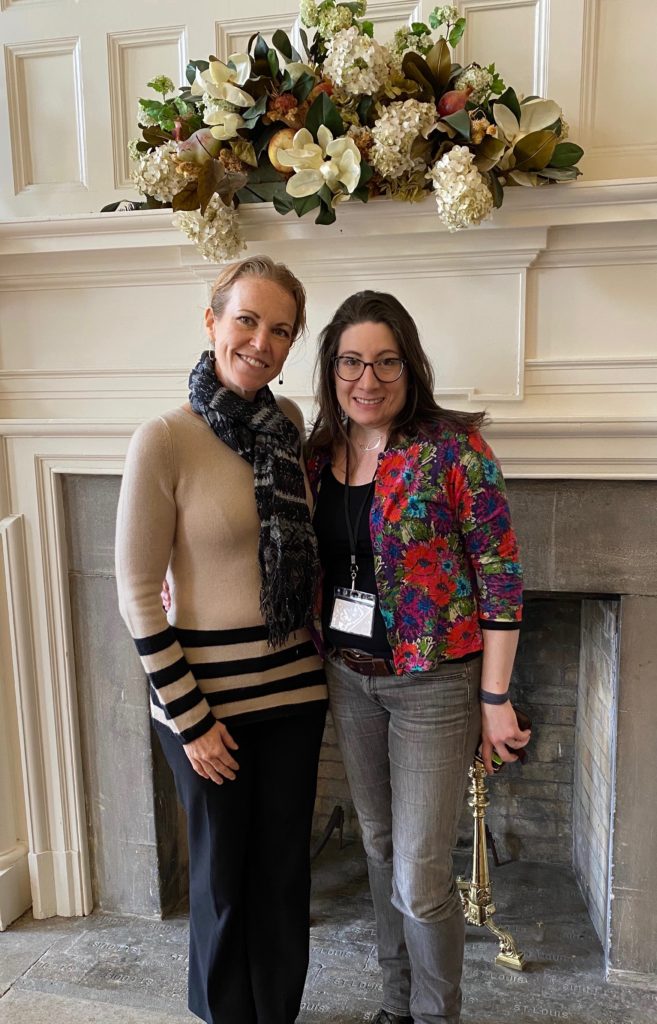
w/ collaborator and friend, Alecia Magnifico, at NCTEAR 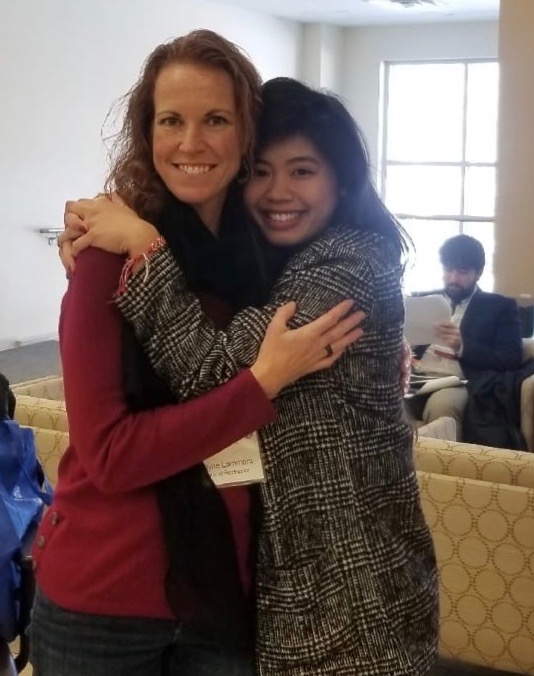
w/ future #globalacademic, Linh Dang, in LeChase Hall 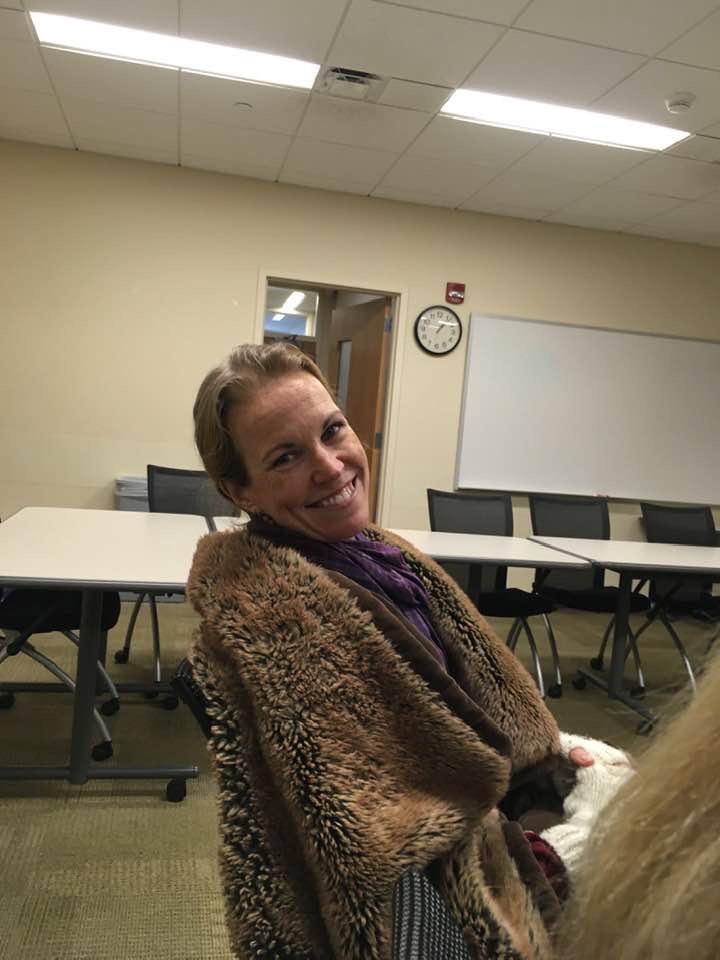
Staying warm in my first department meeting back
I have also started to share initial findings from the Fulbright research, attending the NCTEAR Mid-Winter Conference in Nashville, TN, just a week before areas of that city were devastated by a tornado. In this first presentation of our early insights to happen outside of Indonesia, I had the opportunity to get valuable reactions to the work from senior literacy scholars, a TESOL teacher educator, and a classroom teacher. And, I had a chance to take a Warner School colleague to tap into her expertise about how best to handle the quantitative analyses of our survey data. So, though my plans to talk about my Fulbright experience at the Warner School and elsewhere have been thwarted by travel bans, cancellations, and rescheduling as a result of COVID-19, I feel like I am in a good place to use my time over the next couple of months to begin organizing the data, reading informing literature, and starting to write about the research and my experience.
So, while the world responds to COVID-19, as large gatherings get cancelled, Fulbright ETAs get evacuated, universities scramble to move courses online, and Americans buy up all of the toilet paper on store shelves, I am working on staying warm, healthy, and present, not thinking too far ahead. Rather than worrying about what impact this has to my plans for the coming months, I’m trying to reconnect with all of the data, lessons learned, and experiences I gathered while away in Indonesia as I adjust back to life in the U.S.A. during times of great uncertainty.
